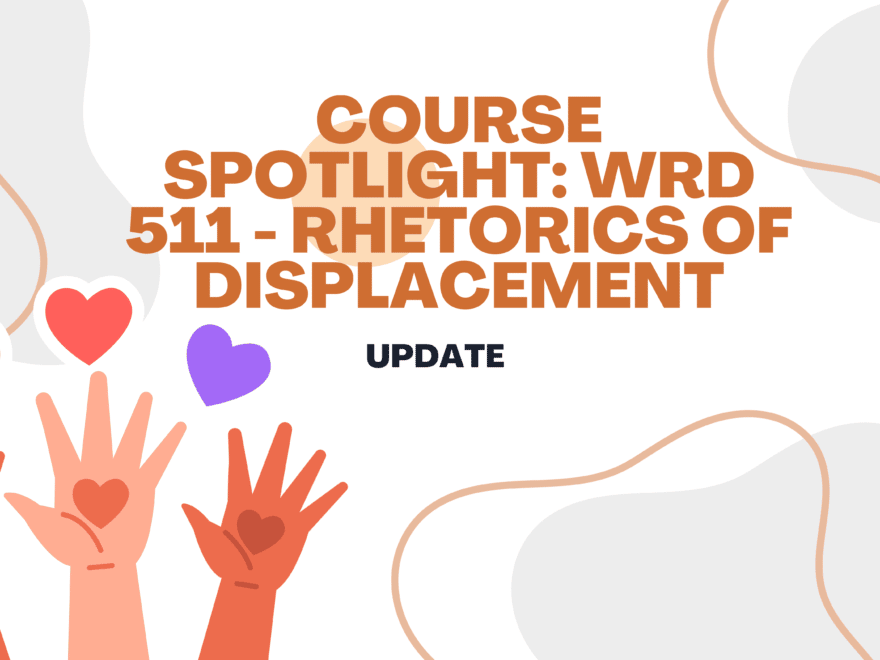During Spring Quarter 2021, Professor Monica Reyes taught WRD 511: Rhetorics of Displacement which was a hit with students and will be coming back for Winter Quarter 2022. We caught up with Reyes to talk about how this class differs from the last time she taught it.
Are you doing anything differently for this iteration of WRD 511: Rhetorics of Displacement?
Yes! Students responded so positively to the course the first time I taught it in Spring [of] 2021, so the bones of the course are still the same. I still have units/themes centered around various rhetorics (like those in video games! and non-profit websites). The course still focuses on students building collaborative stories with someone who has experienced displacement, and we’re still partnering with a non-profit.
The changes include different guest speakers, our non-profit partner, as well as some of the course readings.
This version of the class will include two new guest lectures from Dr. Sarah McKinnon from the University of Wisconsin-Madison (Communications) who wrote the book Gendered Asylum. Another new face will be Dr. Randall Monty from the University of Texas Rio Grande Valley (Writing & Language Studies). I co-authored a piece with Dr. Monty about using our rhetorical expertise to help establish writing support in an emergency shelter for people seeking asylum. Dr. Monty has published on writing center and border studies.
Additionally, students will partner with a local Chicago non-profit, World Relief, to complete their collaborative counterstory. I’m currently working to ensure that our collaborative time will take place virtually during regularly scheduled class time.
One exciting change to the required readings is a collection of children’s picture books [that] help re-story the journey of Latinx immigration (La Frontera: El viaje con papá/My Journey with Papa; My Diary from Here to There/Mi diario de aquí hasta allá; My Shoes and I: Crossing Three Borders/Mis Zapatos y Yo: Cruzando Tres Fronteras).
Is the current sociopolitical climate going to impact how students interact with the materials?
I would expect so. Some facets of immigration (like asylum) are pretty heavily debated and scrutinized on the news. However, I also imagine that each of my students also have personal stories, maybe not about their own immigration journey, but about their friends, neighbors, peers, etc. that have helped them understand the sociopolitical climate actually impact real people.
Did the first iteration of this class change your perspective on teaching it at all?
The first time I taught this course, we were still in lockdown, but I was stubborn to make the service-learning component work! We partnered virtually with a non-profit in south Texas, and that partnership had wi-fi challenges! Since 2021, I have been trying to find a local non-profit partner for this upcoming course, so I would say teaching the course the first time helped remind me of the importance of planning early.
Another wonderful lesson I re-learned the first time I taught this course was about embracing the expertise of my students. I had about half of the students from WRD and the other half or so from MS in Refugee and Forced Migration Studies. I found that both groups brought the necessary background to have these interdisciplinary conversations. So even though my WRD students may have never worked with displaced populations, they were able to learn from their peers just as much as the course materials and activities.
